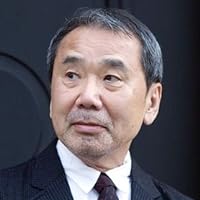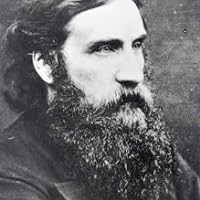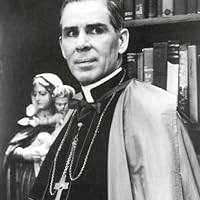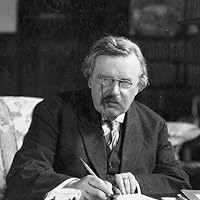Ethics Quotes
Quotes tagged as "ethics"
Showing 1,831-1,860 of 1,862

“It is a ridiculous thing for a man not to fly from his own badness, which is indeed possible, but to fly from other men's badness, which is impossible.”
― Meditations
― Meditations

“Not everyone can be bribed with meat, Oberon."
"They Can't? Oh! you mean they're vegetarian."
"No, they eat meat. It just doesn't sway their decision making process."
"Well that... that's just wrong, Atticus!Are they Monsters? It's like they have no moral center!”
― Trapped
"They Can't? Oh! you mean they're vegetarian."
"No, they eat meat. It just doesn't sway their decision making process."
"Well that... that's just wrong, Atticus!Are they Monsters? It's like they have no moral center!”
― Trapped

“Like it or not, it's the society we live in. Even the standard of right and wrong has been subdivided, made sophisticated. Within good, there's fashionable good and unfashionable good, and ditto for bad. Within fashionable good, there's formal and then there's casual; there's hip, there's cool, there's trendy, there's snobbish. Mix 'n' match.”
― Dance Dance Dance
― Dance Dance Dance

“Is it possible that future generations will regard our present agribuisness and eating practices in much the same way we now view Nero's entertainments or Mengele's experiments? My own initial reaction is that such a comparison is hysterical, extreme - and yet the reason it seems extreme to me appears to be that I believe animals are less morally important than human behings; and when it comes to defending such a belief, even to myself, I have to acknowledge that (a) I have an obvious selfish interest in this belief, since I like to eat certain kinds of animals and want to be able to keep doing it, and (b) I haven't succeeded in working out any sort of personal ethical system in which the belief is truly defensible instead of just selfishly convenient.”
― Consider the Lobster and Other Essays
― Consider the Lobster and Other Essays

“Principles are what people have instead of God.
To be a Christian means among other things to be willing if necessary to sacrifice even your highest principles for God's or your neighbour's sake the way a Christian pacifist must be willing to pick up a baseball bat if there's no other way to stop a man from savagely beating a child.
Jesus didn't forgive his executioners on principle but because in some unimaginable way he was able to love them.
'Principle' is an even duller word than 'Religion'.”
― Wishful Thinking: A Seeker's ABC
To be a Christian means among other things to be willing if necessary to sacrifice even your highest principles for God's or your neighbour's sake the way a Christian pacifist must be willing to pick up a baseball bat if there's no other way to stop a man from savagely beating a child.
Jesus didn't forgive his executioners on principle but because in some unimaginable way he was able to love them.
'Principle' is an even duller word than 'Religion'.”
― Wishful Thinking: A Seeker's ABC

“He sells his loyalties to the highest bidder. Shouldn’t even a mercenary have morals? That’s the textbook definition of a whore!”
―
―

“Some people say they love animals and yet harm them nonetheless; I'm glad those people don't love me.”
― The Animal Manifesto: Six Reasons for Expanding Our Compassion Footprint
― The Animal Manifesto: Six Reasons for Expanding Our Compassion Footprint

“Seek not that your sons and your daughters should not see visions, should not dream dreams; seek that they should see true visions, that they should dream noble dreams. Such out-going of the imagination is one with aspiration, and will do more to elevate above what is low and vile than all possible inculcations of morality.”
― A Dish of Orts
― A Dish of Orts

“والمتدين الذي يباشر بعض العبادات، ويبقى بعدها بادى الشر، كالح الوجه، قريب العداون كيف يحسب امرءاً تقيّاً؟”
― خلق المسلم
― خلق المسلم

“Counsel involving right and wrong should never be sought from a man who does not say his prayers.”
―
―

“Deplorable practices adopted during the last century were repeatedly declared necessary if regrettable in order to win the war. Oddly enough, we've yet to win. You'd think somebody would have asked before this why the regrettable but necessary measures haven't actually produced the promised results.”
― Courageous
― Courageous

“In Mere Christianity, C. S. Lewis argues that human beings cannot be truly good or moral without faith in God and without submis- sion to the will of Christ. Unfortunately, Lewis does not provide any actual data for his assertions. They are nothing more than the mild musings of a wealthy British man, pondering the state of humanity’s soul between his sips of tea. Had Lewis actually famil- iarized himself with real human beings of the secular sort, per- haps sat and talked with them, he would have had to reconsider this notion. As so many apostates explained to me, morality is most certainly possible beyond the confines of faith. Can people be good without God? Can a moral orientation be sustained and developed outside of a religious context? The answer to both of these questions is a resounding yes.”
― Faith No More: Why People Reject Religion
― Faith No More: Why People Reject Religion
“To be ethical is to endeavor to find one's proper place in the larger scheme of things rather than to seek to assert human superiority over the natural world.”
― Animals and the Moral Community: Mental Life, Moral Status, and Kinship
― Animals and the Moral Community: Mental Life, Moral Status, and Kinship

“A father acts on behalf of his children by working, providing, intervening, struggling, and suffering for them. In so doing, he really stands in their place. He is not an isolated individual, but incorporates the selves of several people in his own self. Every attempt to live as if he were alone is a denial of the fact that he is actually responsible. He cannot escape the responsibility, which is his because he is a father. This reality refutes the fictitious notion that the isolated individual is the agent of all ethical behavior. It is not the isolated individual but the responsible person who is the proper agent to be considered in ethical reflection.”
― Ethics
― Ethics

“The limitation of the ethical phenomenon to its place and time does not imply its rejection but, on the contrary, its validation. One does not use canons to shoot sparrows.”
― Ethics
― Ethics

“[At the scene of a murder]
The cats' bloodthirst was normal; it was the way God had made them. They were hunters, they killed for food and to train their young--well maybe sometimes for sport. But this violent act by some unknown human had nothing to do with hunting--for a human to brutally maim one of the own kind out of rage or sadism or greed was, to Joe and Dulcie (the cats), a shocking degradation of the human condition. To imagine that vicious abandon in a human deeply distressed Dulcie; she did not like thinking about humans that way.”
― Cat in the Dark
The cats' bloodthirst was normal; it was the way God had made them. They were hunters, they killed for food and to train their young--well maybe sometimes for sport. But this violent act by some unknown human had nothing to do with hunting--for a human to brutally maim one of the own kind out of rage or sadism or greed was, to Joe and Dulcie (the cats), a shocking degradation of the human condition. To imagine that vicious abandon in a human deeply distressed Dulcie; she did not like thinking about humans that way.”
― Cat in the Dark
“I don't believe vegans (or vegetarians) who still get their (packaged, preservative/chemical-ridden) food from industrial food systems have any righteous ground to stand on, nor do I think a deep look at the sentient life of plants or the true environmental impact of agriculture permits them any comfortable distance from cruelty. Everything in this world eats something else to survive, and that something else, whether running on blood or chlorophyll, would always rather continue to live rather than become sustenance for another. No animal wants to be penned up and milked, or caged and harvested, and you've never seen plants growing in regimented lines of their own accord.”
―
―

“Due to some dim but irresistible notion of the way things are, it is simply not possible, out of order, not apprpriate to the situation at hand, if, within the circle of those who are experienced and advanced in years, the young person declaims ethical generalities. Young people will again and again find themselves in a situation that is so irritating, astounding, and incomprehensible to them that their word falls on deaf ears, while the word of an older person is heard and has weight even though its content is no different at all. It will be a sign of maturity or immaturity whether this experience leads them to understand that what is at stake here is not the stubborn self-satisfaction of old age, or the anxious effort to keep youth in their place, but the pereservation or violation of an essential ethical law. Ethical discourse needs authorization, which youth are simply not able to bestow upon themselves, even if they speak out of the purest pathos of their ethical conviction. Ethical discourse does not merely depend on the correct content of what is said, but also on the speaker being authorized to say it. Its validity depends not only on what is said, but also on who says it.”
― Ethics
― Ethics

“A spirit of license makes a man refuse to commit himself to any standards. The right time is the way he sets his watch. The yardstick has the number of inches that he wills it to have. Liberty becomes license, and unbounded license leads to unbounded tyranny. When society reaches this stage, and there is no standard of right and wrong outside of the individual himself, then the individual is defenseless against the onslaught of cruder and more violent men who proclaim their own subjective sense of values. Once my idea of morality is just as good as your idea of morality, then the morality that is going to prevail is the morality that is stronger.”
― On Being Human: Reflections on Life and Living
― On Being Human: Reflections on Life and Living

“Buddha wrote a code which he said would be useful to guide men in darkness, but he never claimed to be the Light of the world. Buddhism was born with a disgust for the world, when a prince's son deserted his wife and child, turning from the pleasures of existence to the problems of existence. Burnt by the fires of the world, and already weary with it, Buddha turned to ethics.”
― Life of Christ
― Life of Christ

“Gray is not a substitute for black and white. You don’t bump into people without saying you’re sorry. When you shake hands, it’s supposed to mean something. If someone is in trouble, you reach out.”
― Essential Lessons on Leadership
― Essential Lessons on Leadership

“Men with power had the responsibility to know what was best, and they so rarely did.”
― Revamp
― Revamp
“How little we really know about the life all around us. Would we be so cavalier and ruthless with it if we understood it better?”
―
―

“A strange fanaticism fills our time: the fanatical hatred of morality, especially of Christian morality.”
―
―

“Our Blessed Lord left the world without leaving any written message. His doctrine was Himself. Ideal and History were identified in Him. The truth that all other ethical teachers proclaimed, and the light that they gave to the world, was not IN them, but OUTSIDE them. Our Divine Lord, however, identified Divine Wisdom with Himself. It was the first time in history that it was ever done, and it has never been done since.”
― Life of Christ
― Life of Christ

“Finding a new ethics or esthetics, as Dr. Douglass asks, will not put us in a state of grace. Existence is not given meaning by importing it into a revelation from the outside. The meaning is —there, in more closely contacting the actual situation, the only situation that there is, whatever it is. As our situation is, closely contacting it would surely result in plenty of trouble and perhaps in terrible social conflicts, terrible opportunities and duties, during which we might learn something and at the end of which we might know something, even a new ethics; for it is in such conflicts that new ethics are discovered. But it is just these conflicts that we do not observe happening. Everybody talks nice. At most there is some unruliness and dumb protest, and some withdrawal.
So urging the juveniles to go to church is not serious, for how will the church give them faith? What opportunity will it open?”
― Growing Up Absurd: Problems of Youth in the Organized System
So urging the juveniles to go to church is not serious, for how will the church give them faith? What opportunity will it open?”
― Growing Up Absurd: Problems of Youth in the Organized System

“Dabei wissen wir doch:
Auch der Hass gegen die Niedrigkeit
Verzerrt die Züge.
Auch der Zorn über das Unrecht
Macht die Stimme heiser. Ach, wir
Die wir den Boden bereiten wollten für
Freundlichkeit
Konnten selber nicht freundlich sein.”
―
Auch der Hass gegen die Niedrigkeit
Verzerrt die Züge.
Auch der Zorn über das Unrecht
Macht die Stimme heiser. Ach, wir
Die wir den Boden bereiten wollten für
Freundlichkeit
Konnten selber nicht freundlich sein.”
―

“No one is without Christianity, if we agree on what we mean by the word. It is every individual's individual code of behavior, by means of which he makes himself a better human being than his nature wants to be, if he followed his nature only. Whatever its symbol—cross or crescent or whatever—that symbol is man's reminder of his duty inside the human race. Its various allegories are the charts against which he measures himself and learns to know what he is. It cannot teach man to be good as the textbook teaches him mathematics. It shows him how to discover himself, evolve for himself a moral code and standard within his capacities and aspirations, by giving him a matchless example of suffering and sacrifice and the promise of hope.”
―
―

“Consider the recent financial crisis and its link to faulty reward systems. President Bill Clinton's objective of increasing homeownership by rewarding potential home buyers and lenders is one example. The Clinton administration "went to ridiculous lengths" to increase homeownership in the United State, promoting "paper-thin down payments" and pushing lenders to give mortgage loans to unqualified buyers according to Business Week editor Peter Coy.”
―
―
All Quotes
|
My Quotes
|
Add A Quote
Browse By Tag
- Love Quotes 97k
- Life Quotes 75.5k
- Inspirational Quotes 72.5k
- Humor Quotes 43.5k
- Philosophy Quotes 29.5k
- Inspirational Quotes Quotes 27k
- God Quotes 26k
- Truth Quotes 23.5k
- Wisdom Quotes 23.5k
- Romance Quotes 23k
- Poetry Quotes 22k
- Death Quotes 20k
- Happiness Quotes 18.5k
- Life Lessons Quotes 18.5k
- Hope Quotes 18k
- Faith Quotes 18k
- Quotes Quotes 16.5k
- Inspiration Quotes 16.5k
- Spirituality Quotes 15k
- Religion Quotes 15k
- Motivational Quotes 15k
- Writing Quotes 14.5k
- Relationships Quotes 14.5k
- Life Quotes Quotes 14k
- Love Quotes Quotes 13.5k
- Success Quotes 13.5k
- Time Quotes 12.5k
- Motivation Quotes 12k
- Science Quotes 11.5k
- Knowledge Quotes 11k


